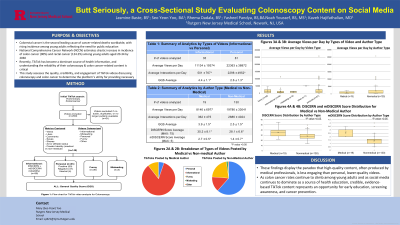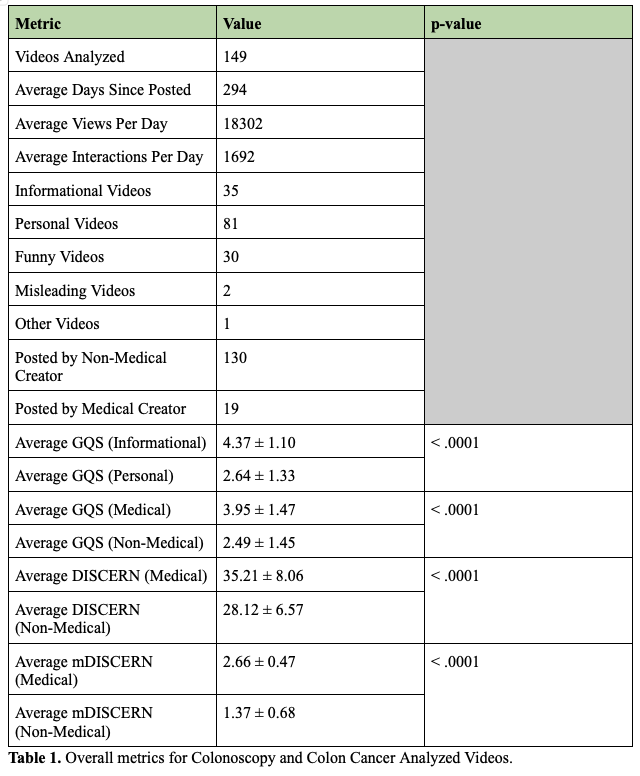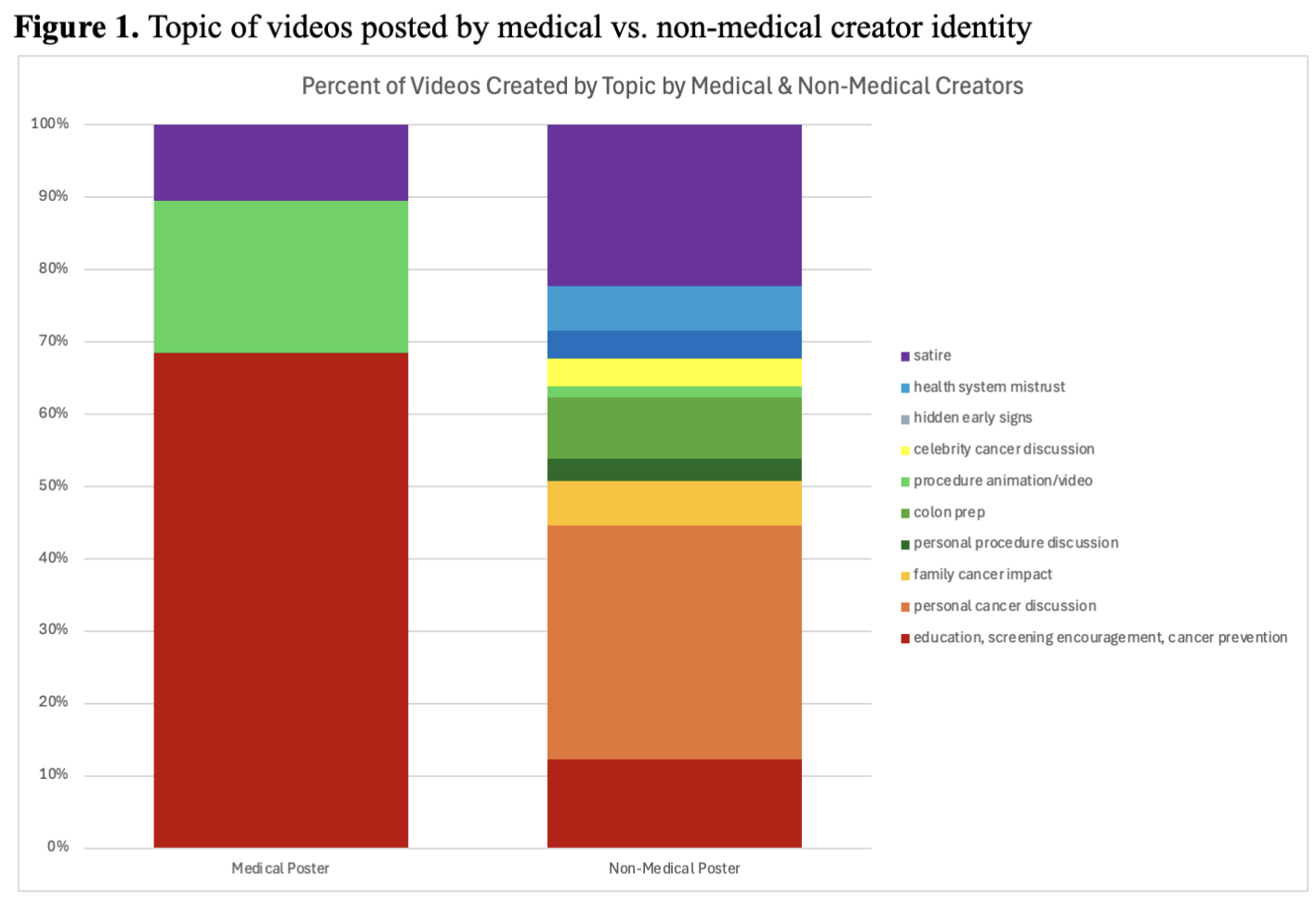Monday Poster Session
Category: Colon
P2417 - Butt Seriously, a Cross-Sectional Study Evaluating Colonoscopy Content on Social Media

- SY
Seo Yeon Yoo, BA
Rutgers New Jersey Medical School
Newark, NJ
Presenting Author(s)
1Rutgers New Jersey Medical School, Bloomfield, NJ; 2Rutgers New Jersey Medical School, Newark, NJ
Introduction:
Colorectal cancer is the second leading cause of cancer-related deaths worldwide, with rising incidence among young adults reflecting the need for effective public education and early detection strategies. The National Comprehensive Cancer Network (NCCN) estimates a drastic increase in the incidence of colon cancer (90%) and rectal cancer (124.2%) among young adults aged 20-34 by 2030. As social media platforms such as TikTok become a dominant source of health information, understanding the reliability of their colonoscopy- and colon cancer-related content is critical. This study assesses the quality, credibility, and engagement of TikTok videos discussing colonoscopy and colon cancer to determine the platform’s utility for providing reliable and evidence-based health information.
Methods:
The hashtags #coloncancer and #colonocopy were surveyed on TikTok, and the top 200 videos were collected using a web scraping tool. After removing non-English, duplicate, and non-relevant videos, the remaining 149 videos were categorized by type (informational, personal, funny, misleading, or other) and creator identity (medical vs. non-medical). Informational content was evaluated using DISCERN and PEMAT (understandability and actionability) tools, and overall quality was scored using the 5-point Global Quality Scale (GQS). Descriptive statistics and unpaired t-tests were performed to assess differences in quality and engagement.
Results:
Of the 149 eligible videos, 35 were informational, 81 personal, 30 funny, 2 misleading, and 1 other. Informational videos had a significantly higher GQS (mean 4.37) compared to personal videos (mean 2.64, p < 0.0001). Medical creators produced higher-quality content, with average DISCERN scores of 35.2 versus 28.1 for non-medical creators (p < 0.0001), and mDISCERN scores of 2.66 vs. 1.37 (p < 0.0001). However, non-medical videos averaged significantly more interactions per day (1886 vs. 362, p = 0.10) and more views per day (19786 vs. 8146), though not statistically significant.
Discussion:
These findings display the paradox that high-quality content, often produced by medical professionals, is less engaging than personal, lower-quality videos. As colon cancer rates continue to climb among young adults and as social media continues to dominate as a source of health information, improving the accuracy and visibility of credible, evidence-based TikTok content represents an opportunity for early education, screening awareness, and cancer prevention.


Disclosures:
Jasmine Baste, BS1, Seo Yeon Yoo, BA2, Rhema Dadala, BS2, Yasheel Pandya, BS, BA2, Noah Youssef, BS, MS2, Kaveh Hajifathalian, MD2. P2417 - Butt Seriously, a Cross-Sectional Study Evaluating Colonoscopy Content on Social Media, ACG 2025 Annual Scientific Meeting Abstracts. Phoenix, AZ: American College of Gastroenterology.
